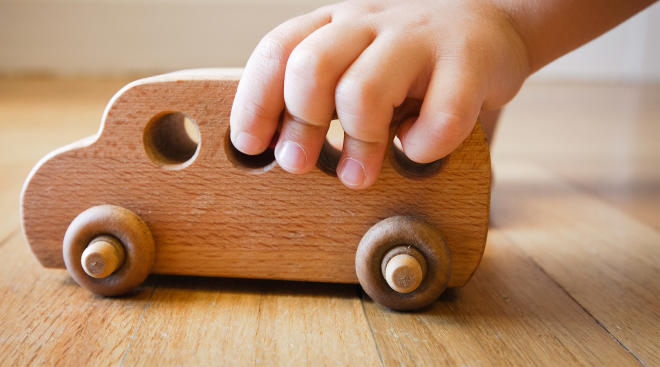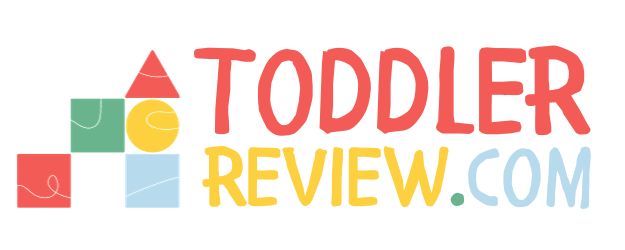In a world filled to the brim with electronic gadgets and plastic playthings, the humble wooden toy can seem like a relic of the past. Yet, as any discerning parent or caregiver knows, these timeless treasures carry an abundance of benefits for our toddlers, often outpacing their more modern counterparts. Let’s journey together through the captivating world of wooden toys for toddlers, exploring their unique advantages.

Before Plastic, There was Wood
Before the plastic invasion and the electronic revolution, wooden toys were the primary form of entertainment for children. Dating back to ancient civilizations, these simple, durable playthings have sparked joy in countless generations. Despite the contemporary onslaught of technologically advanced toys, wooden toys have stood the test of time, continuing to enchant and educate young minds. The resilience of wooden toys throughout history is a testament to their timeless appeal and inherent value (source).
Advantages of Wooden Toys for Toddlers
Sustainability and Environmental Impact
In an era of heightened environmental consciousness, wooden toys shine brightly. They represent a sustainable, eco-friendly alternative to the sea of plastic that inundates our children’s lives. When responsibly sourced and manufactured, wooden toys not only limit our reliance on fossil fuels but also help to lower our carbon footprint. By choosing wooden toys, we are advocating for a more sustainable future, teaching our children invaluable lessons about environmental stewardship (source).
Durability and Longevity
There’s something profoundly satisfying about toys that endure. Wooden toys, with their exceptional durability, are playroom investments. I recall a wooden train set from my own childhood, passed down from my grandfather, which weathered countless playdates and sibling squabbles, yet remains intact for the next generation. The longevity of wooden toys doesn’t just translate into cherished family heirlooms; it means more savings in the long run as well.
Safety Aspects
Compared to their plastic and electronic counterparts, wooden toys are inherently safer for young children. Devoid of sharp edges or easily breakable parts, they offer worry-free playtime for parents and caregivers. Moreover, wooden toys crafted with non-toxic finishes present a healthier choice, eliminating the risk of harmful chemicals often found in plastic toys.
Educational Benefits
The benefits of wooden toys extend well beyond environmental and safety aspects, particularly montessori wooden toys; they are incredibly advantageous for a child’s development. Here’s how:
- Motor Skills Development: Wooden toys, especially those designed for building or threading, can significantly enhance toddlers’ fine motor skills and hand-eye coordination.
- Cognitive Development: Many wooden toys promote problem-solving and logical thinking. Puzzles, shape sorters, and matching games all encourage toddlers to think critically and creatively.
- Imagination and Creativity: Unlike many electronic toys that dictate how a child should play, wooden toys are often open-ended. They allow children to use their imaginations freely, promoting creative play. For example, wooden blocks can become a castle, a spaceship, or a bustling city depending on the child’s imagination.
- Social Skills: Role-play wooden toys, such as dollhouses or play shops, encourage social interaction, helping toddlers develop crucial skills like communication, cooperation, and empathy.
- Sensory Development: The textures, weights, and even smells of wooden toys offer a rich sensory experience for toddlers, aiding in their sensory development and understanding of the world around them.
Where many contemporary toys lead with loud noises, flashing lights, and predetermined scripts, wooden toys invite open-ended play, stimulating imagination and cognitive growth. They offer just enough intrigue without dictating the rules of the game, encouraging problem-solving, fine motor skills, and creative thinking. Multiple studies underline the importance of such imaginative play in early childhood development, particularly wooden food toys or similar role-playing alternatives (source).
Versatility
Wooden toys are versatile and often suitable for a range of ages. A toddler might use a set of wooden blocks for simple stacking, while an older child could use them for more elaborate construction projects. This adaptability makes wooden toys a long-lasting addition to the playroom.
All these benefits make wooden toys a wise investment in a child’s formative years. They offer a healthy, sustainable, and valuable alternative to many of the mass-produced toys on the market today.

